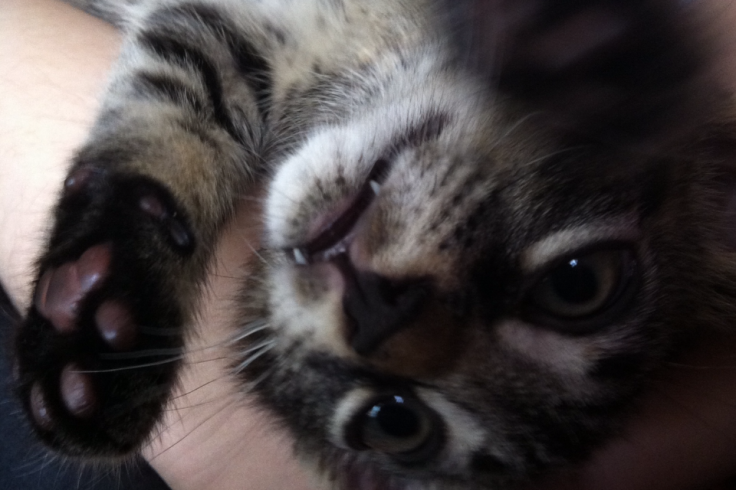How Evolution Made Your Cat Grumpy: Conflicting Instincts Could Be Our Own Fault, Researchers Say

You and your kitty may have few things in common, at least when it comes to emotional and expressive capacity. Research indicates that the domesticated cat isn’t very domesticated at all, and currently occupies an evolutionary gray area. Rather than sophistication or dignity, your feline’s inscrutable ways may stem from a genetic tug-of-war between modern and ancient instincts.
Whereas dogs have evolved alongside humans since the late stone age, cats have only been domestically bred for a few thousand years. It follows that cats are not nearly as attuned to human expression and behavior as their canine counterparts. Instead, the modern cat is a kind of liminal figure, caught in an interminable transition from prehistoric killer to cuddly companion.
"Their ability to be social ... is only a few thousand years old," British anthrozoologist John Bradshaw told NBC News. "The cat's domestication is incomplete, in terms of its need to continue hunting and also in terms of its ability to socialize. One of the consequences of that is it has a rather unexpressive face."
Enigmatic expressions aside, the abbreviated history of domestication also accounts for your cat’s strategic hunt for prey - be it for rodents, small birds, toys, or pieces of string. Even small kittens exhibit a systematic rigor in the way they map their environment, trace paths, and eventually strike. In dogs, this behavior has largely been reduced to a mode of interaction and play.
According to Bradhaw, humans are partially responsible for this instinctual ambiguity. He explains that the maladaptive aspects of cats' current genetic profile stem from our somewhat counterintuitive way of breeding the animal. Today, the specimen most suitable for a domestic environment is also the least likely to reproduce, as 88 percent of kittens are either spayed or neutered.
Ironically, the moment a lineage aligns with our cuddly ideals, it is instantly subtracted from the animal’s overall genetic representation. As 80 percent of kittens are born to feral or stray cats, the evolutionary process largely occurs in the wild. In this sense, our attempts to promote domestication actually delays the process.
"Geneticists have found that there are a very small number of genes that define the domestic aspects of a cat," Shaw explained. "If we can identify those, then maybe we'll generate a cat that is more suitable for urban living than the current model is."
Until then, don't let your guard down.



























